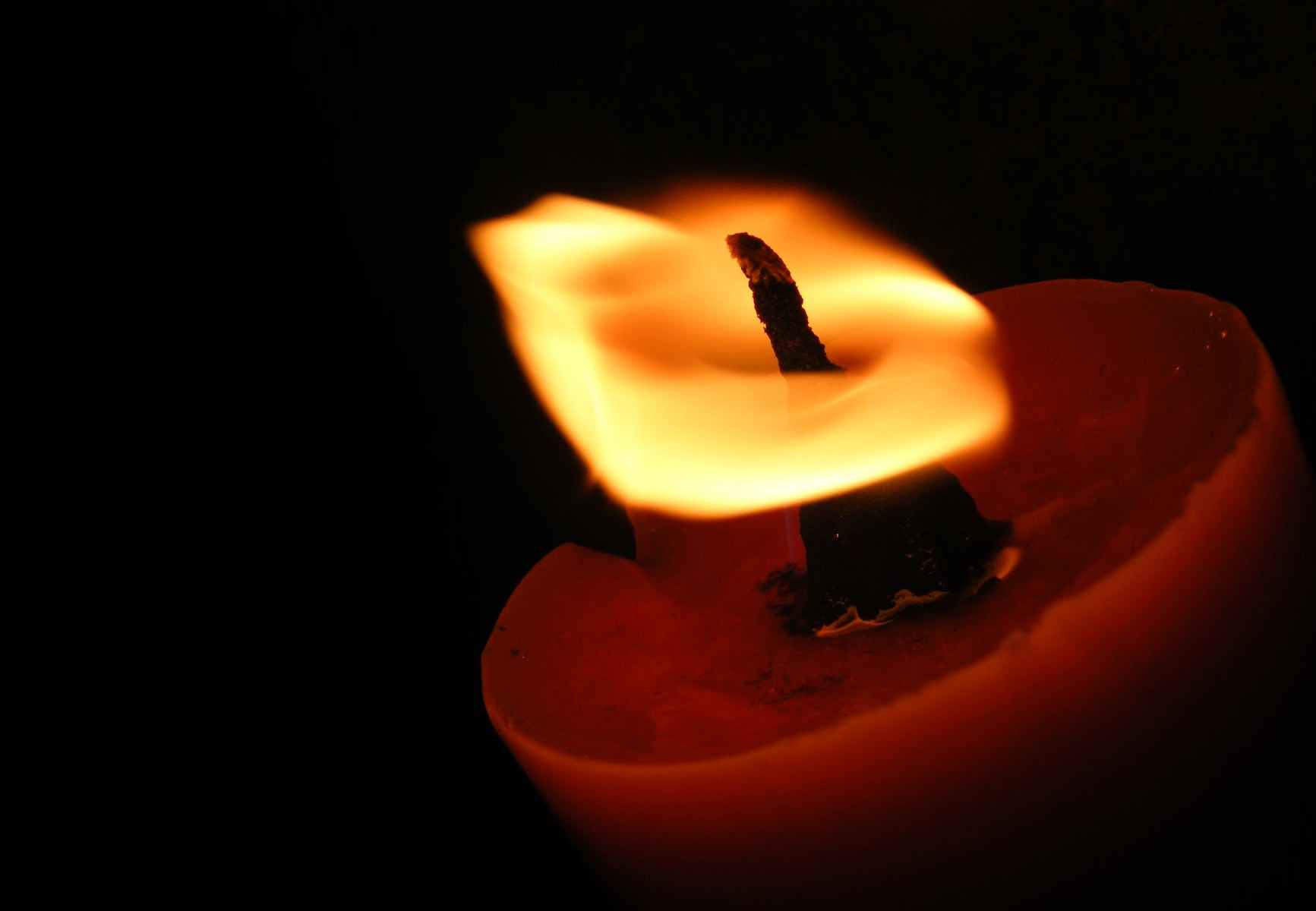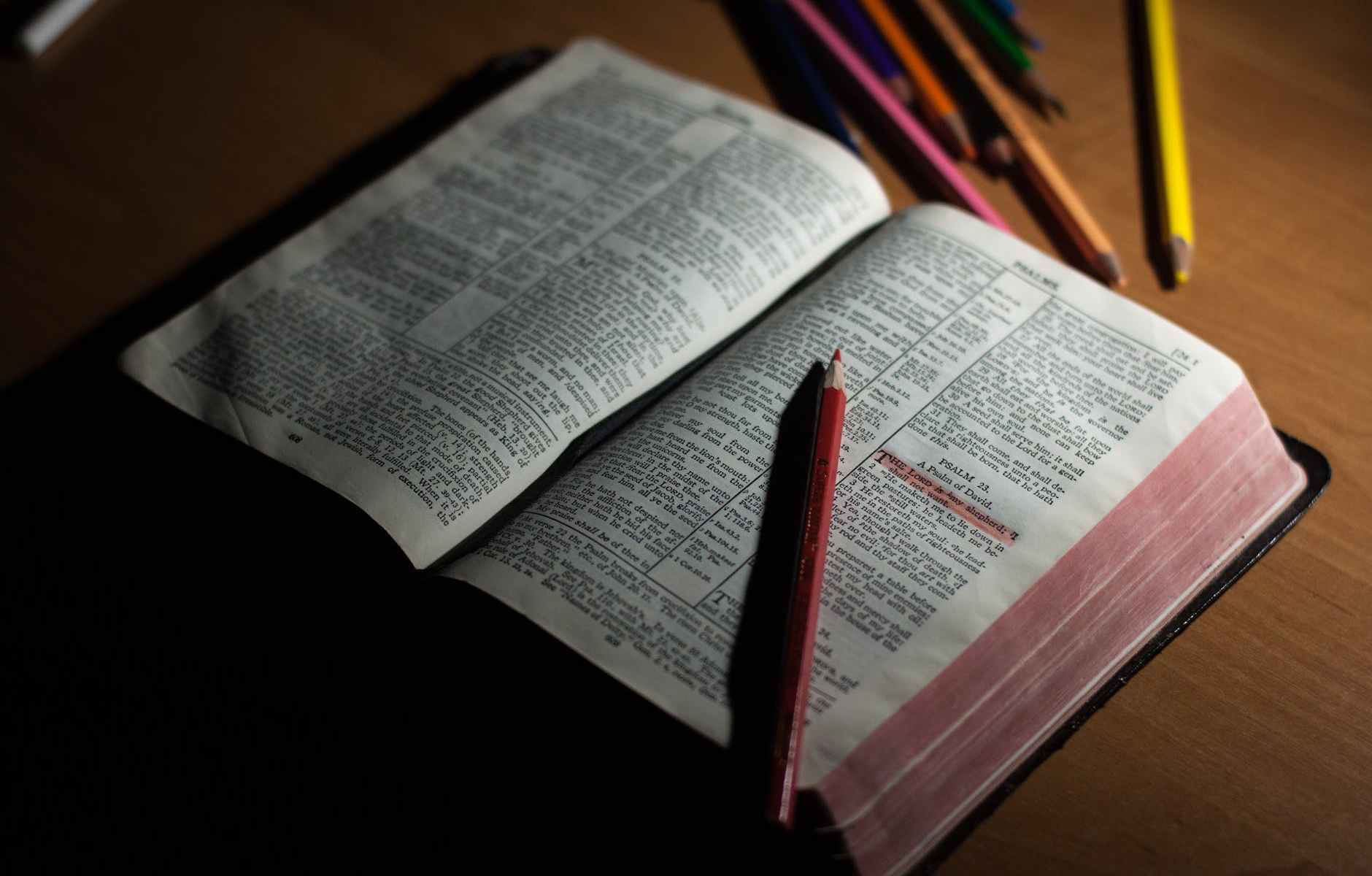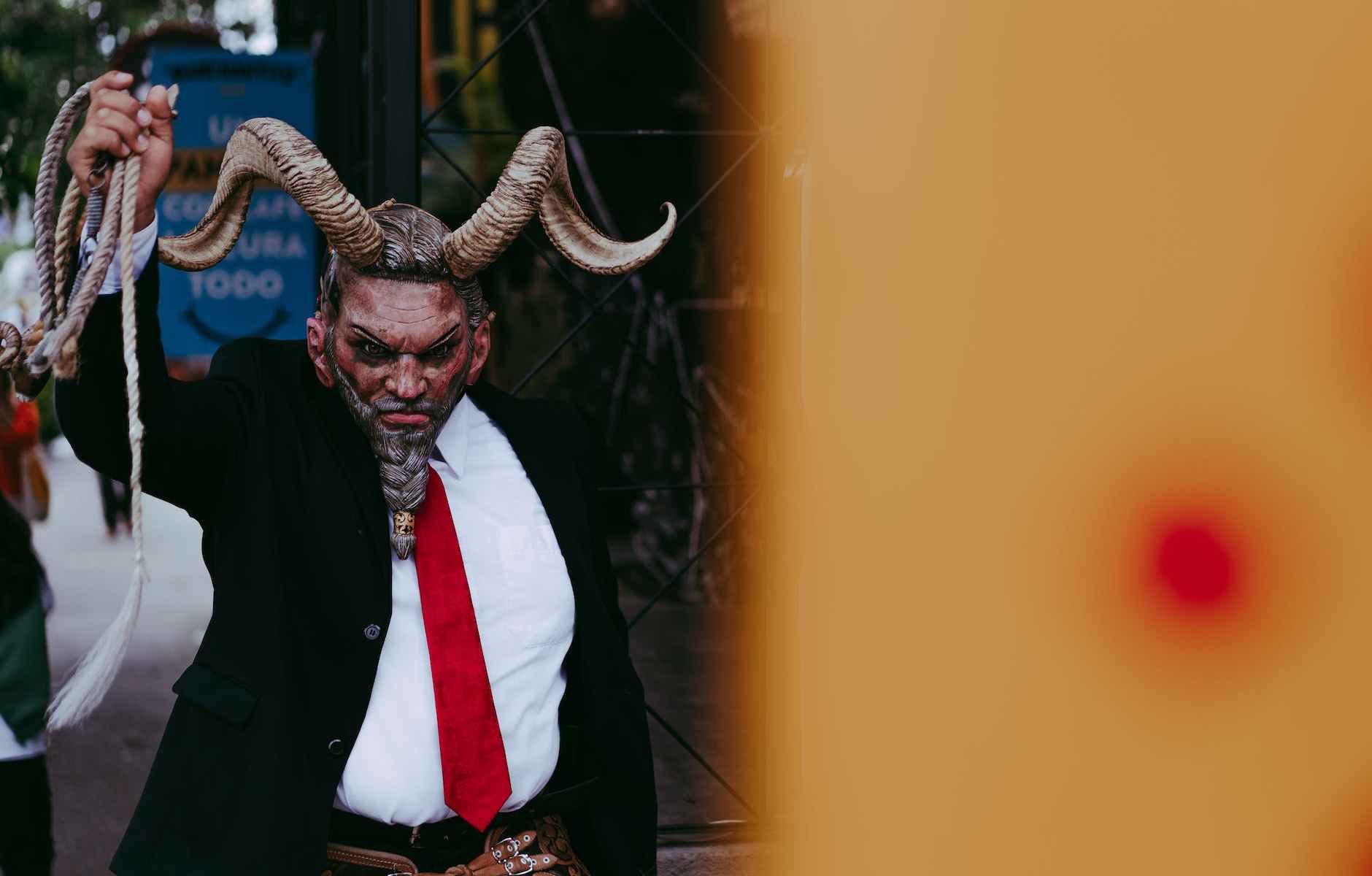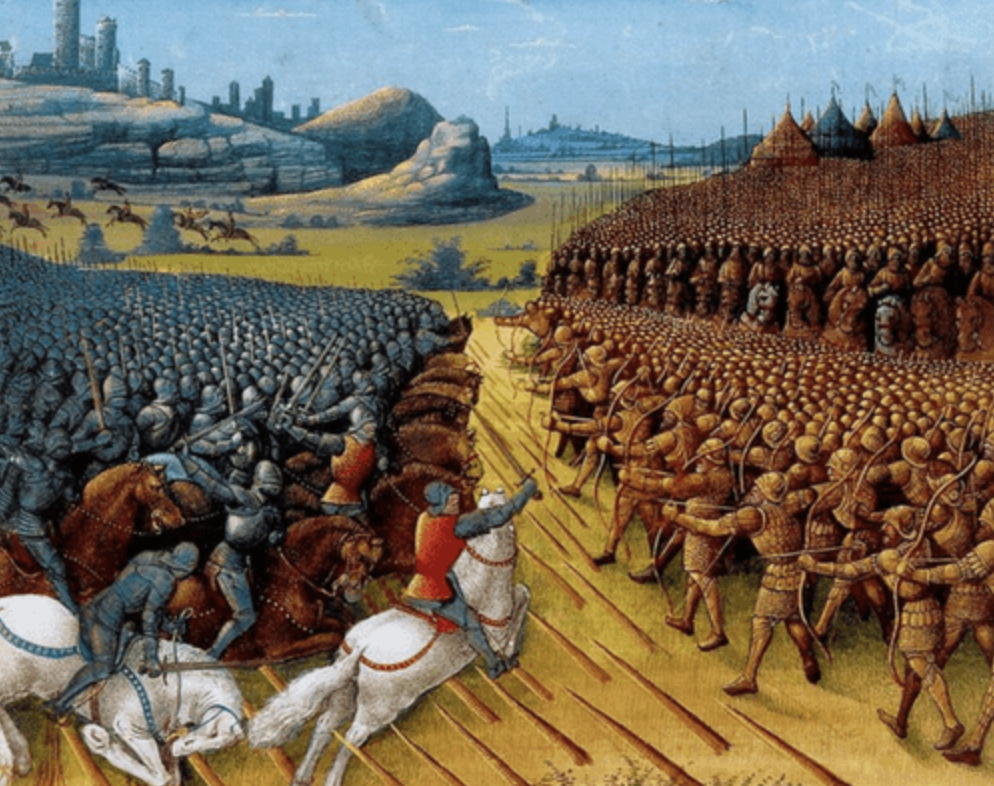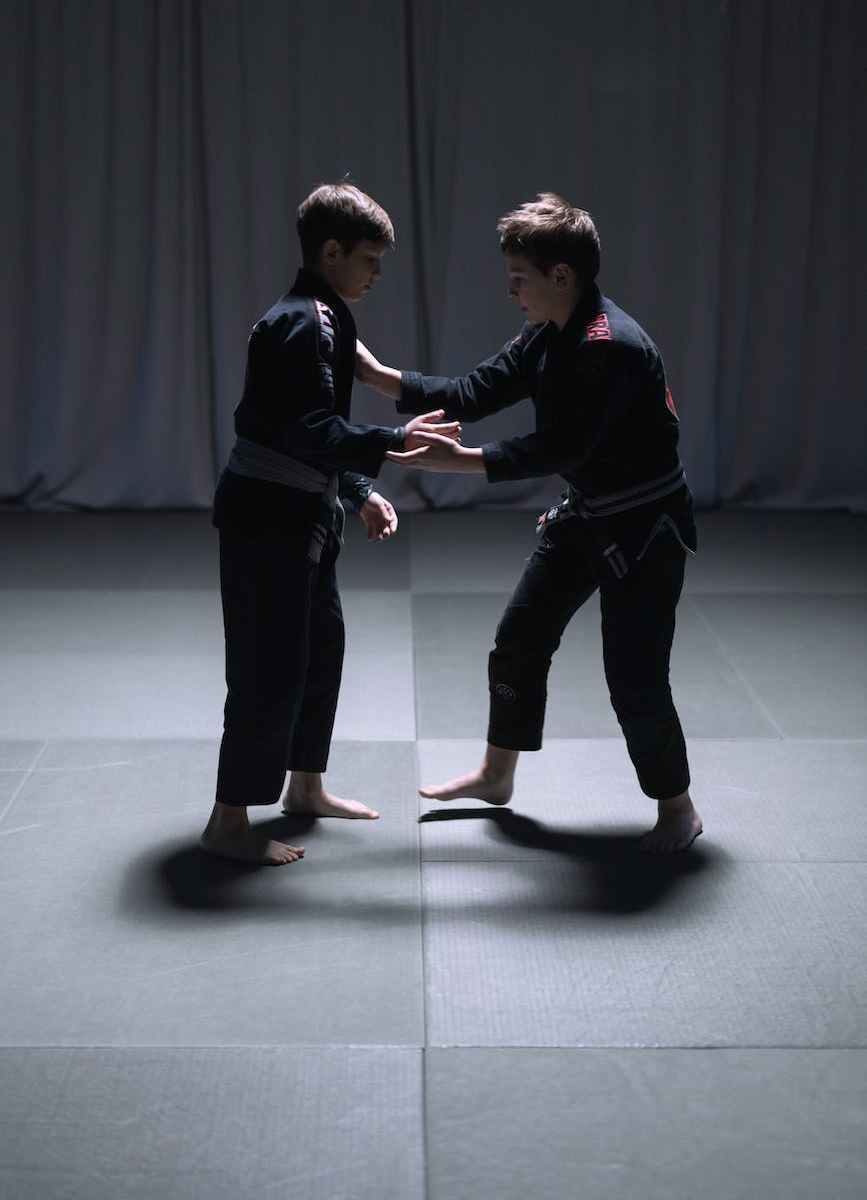“I myself have resolved to follow the path of righteousness henceforth. More than anything, devote yourself to learning and act in accordance with the teachings of the past.” – Katsu Kokichi, Musui’s Story
0192: Midweek Debrief – Musui’s Story, A Tokugawa Samurai
Podcast Link: https://podcasters.spotify.com/pod/show/donavon-riley/episodes/0192-Midweek-Debrief—Musuis-Story–A-Tokugawa-Samurai-e2ib66a
“I realized that this was true for both China and Japan: every one of those who had been brought to ruin or lost their lands had been punished by Heaven for neglecting the proprieties between sovereign and subject, the bond of affection between parent, child, and brother, and for wallowing in greed and extravagance. All the more wondrous, then, that I have survived thus far without mishap. Indeed, I am overwhelmed by the mercy and goodness of Heaven that I even hesitate to show my face to my fellow men.” – Katsu Kokichi, Musui’s Story
0191: Midweek Debrief – The First & Final Story
Podcast Link: https://podcasters.spotify.com/pod/show/donavon-riley/episodes/0191-Midweek-Debrief—The-First–Final-Story-e2hvrf4
It was not long then until there was the spirit coming, by God’s power, the holy breath, going under the hard stone to the corpse! Light was at that moment opened up, for the good of the sons of men. The many bolts of Hell were unlocked. The road from this world up to heaven was built. Brilliantly radiating, in such a way that the guards, tough soldiers, were not at all aware of when he got up from death and arose from his rest.
0190: Midweek Debrief – listening long to the silence
Podcast Link: https://podcasters.spotify.com/pod/show/donavon-riley/episodes/0190-Midweek-Debrief—listening-long-to-the-silence-e2hd8i1
Many and powerful are the agents who would bar the door to the key to the universe, many who would throw a veil over him. Moses, you recall, was hard to see. David, perhaps more so. None of this has been easy. And yet there lies between us and Jesus two-thousand years of war, famine, disease, and death.
Jesus is God. He is the turning point of history, which is why there is no more misinterpreted or maligned or slandered figure. And, most of us have a bone to pick with Jesus too.
Where can we be with God in this season of death? We pray for help, some daily, and a few, many more times than that. We ask for a heart that is ready to receive God. “Help me, Jesus,” we beg. “Give me some direction.”
“Or, maybe, you can’t.” The unspoken prayer.
0189: Midweek Debrief – How Lovely It Was
Podcast Link: https://podcasters.spotify.com/pod/show/donavon-riley/episodes/0189-Midweek-Debrief—How-Lovely-It-Was-e2h3eja
Those who do not want to live under God’s government will not be forced to. That would erase the principle of love upon which the cosmos is founded — no one will be sent away from the presence of God who wants to stay. So God’s people have prayed for millennia that there will be no such people. But we know it happens, and that there are too many to name.
Why would anyone want to turn away from God? There are many ways, but rather than try to explain, we pray instead for repentance, and that they, like us, would be transformed. We pray that they may be saved, yes, but even more than that, we pray that they may be changed, to become, in a word, like God.
0188: Midweek Debrief – Keening Their Swords
Podcast Link: https://podcasters.spotify.com/pod/show/donavon-riley/episodes/0188-Midweek-Debrief—Keening-Their-Swords-e2gp442
David was a stone in the path upon which the Paradise King trod.
This King is the earth shaker. He is the cloud rider. He is the guardian of widows and orphans, and a servant-king who withholds nothing from his people. His face is young, yet old beyond the reckoning of this or any age, for he hails from eternity past. It is a beautiful face, full of humility and adoration and power. And he is crowned with purest golden light. He is the morning star and his eyes burn. They blaze with immortal fires, and there is laughter there, laughter and springtime and joy enough to set the whole cosmos to singing.
0187: Midweek Debrief – The Flames of Time
Podcast Link: https://podcasters.spotify.com/pod/show/donavon-riley/episodes/0187-Midweek-Debrief—The-Flames-of-Time-e2gfa25
After his death, the people waited for a prophet like Moses to appear because Moses had told them to watch.
“Yahweh your God will raise up for you a prophet like me from among you, from your brothers.” Moses had said, “To him, you will listen.”
And so, the invitation is in front of you too, to hear him. “Come,” Jesus says, “and follow me. Come and learn how to live. Come with me, and I will heal your heart. Follow me, and I will make you human again.”
Many before you have accepted the invitation. There is Paul, the persecutor, who saw Jesus on the throne of God and was blinded by the revelation. There is Polycarp, whose blood put out the fire. There is Irenaeus, who stood like a lighthouse on the edge of a stormy sea, and the waves were perversions of the Gospel of Jesus, and yet he did not yield. There is George, the red-crossed knight, who offered up his head to an emperor rather than renounce his faith. There is Ephraim the Syrian, John the Golden Mouth, and the Venerable Bede. They are your ancestors. They are your family. They have passed the Good News of Jesus from door to door, from generation to generation, like small buckets of sacred treasure. Now, at last, it comes to you, and it is time for your hearts to expand with the inexhaustible joy of God’s love; the love of him who leads you through the Sea of Death onto the welcoming shores of Paradise.
0186: Midweek Debrief – The Gloaming Time
Podcast Link: https://podcasters.spotify.com/pod/show/donavon-riley/episodes/0186-Midweek-Debrief—The-Gloaming-Time-e2g534b
The gods came down. Slinking, slithering, prowling, whispering, they sought out earthly kings. And so, Pharaoh Merneptah heard a voice in the dark and the voice said his name. He woke, and there was Ptah with a plan. The old kings of Uruk also were tutored. Ayala had the fish creature, Adapa, for an advisor. Alaglar had Uanduga from the sea. In his time, Hammurabi met Shammash, and from that god recovered the knowledge the flood had destroyed. The trend never stopped. Descartes saw lights in his tent, and a creature gave him his method. Oppenheimer set off his bomb, and Krishna spoke, “I am become death, the destroyer of worlds.” These had a plan: to rule and remake humanity. The ruling was easily done. The remaking was harder. Harder, but not impossible.
The enemy has always worked to remake humanity in its image, an image of ancient jealousy and ravenous pride.
0185: In The Beginning… A Story
Podcast Link: https://podcasters.spotify.com/pod/show/donavon-riley/episodes/0185-In-The-Beginning—-A-Story-e2fr8l8
… we must start in the most difficult place: in the beginning. We have to start where the story is not broken or befouled, when wild waves cooled sun-soaked shores and the choruses of birds carried over ebony cliffs, who knows how far.
It was a wild world, all welter and waste. Unrestrained rivers carved crooked lines across sprawling green plains. The earth birthed bejeweled fruit, and untended forests clawed in vain at the roots of mountains. And God loved it, because he created it.
That is just a small part of the story of the Bereshit, the “beginning” as the Hebrews call it. It is an old story, the first story told by God, and God is very old, and he is not always easy to understand. But, old things are often hard to understand.
For this reason, old stories are abandoned, because they allude us. New stories take their place, stories that are not so wild, or weird, or hard to hear. In general, the more remote a story is, and the more work we must do to understand it, the more likely it is that it will suffer mishandling.
And almost every witch, sorcerer, scientist, and pseudo-philosopher has some interest in mishandling this story. It is not hard to see why. In the beginning, you see the end. If you want to control how the story concludes, you attack it at the very start. – Donavon L Riley. Homily on Creation
0184: Midweek Debrief – Buffered & Pourous People
Podcast Link: https://podcasters.spotify.com/pod/show/donavon-riley/episodes/0184-Midweek-Debrief—Buffered–Pourous-People-e2fhp82
Almost everyone can agree that one of the big differences between us and our ancestors of five hundred years ago is that they lived in an “enchanted” world, and we do not; at the very least, we live in a much less “enchanted” world. We might think of this as our having “lost” a number of beliefs and the practices which they made possible. But more, the enchanted world was one in which these forces could cross a porous boundary and shape our lives, psychic and physical. One of the big differences between us and them is that we live with a much firmer sense of the boundary between self and other. We are “buffered” selves. We have changed. – Charles Taylor, Buffered and Porous Selves
Article Link: https://tif.ssrc.org/2008/09/02/buffered-and-porous-selves/
0183: Midweek Debrief – Chesterton on Fairytales
Podcast Link: https://podcasters.spotify.com/pod/show/donavon-riley/episodes/0183-Midweek-Debrief—Chesterton-on-Fairytales-e2f7ve2
This is the profound morality of fairy-tales; which, so far from being lawless, go to the root of all law. Instead of finding (like common books of ethics) a rationalistic basis for each Commandment, they find the great mystical basis for all Commandments. We are in this fairyland on sufferance; it is not for us to quarrel with the conditions under which we enjoy this wild vision of the world. The vetoes are indeed extraordinary, but then so are the concessions. – G.K. Chesterton, Fairy Tales
0182: Midweek Debrief – What Is The Goal of An Art?
Podcast Link: https://podcasters.spotify.com/pod/show/donavon-riley/episodes/0182-Midweek-Debrief—What-Is-The-Goal-of-An-Art-e2espi8
The Way of combat strategy can be likened to the craft of carpentry. Comparing samurai with carpenters is related to the subject of “houses.” We speak of noble houses, warrior houses and the “Four Houses.” We also talk of the collapse or continuation of a house. In the arts we refer to a school or tradition as a house. It is because the label “house” is employed as such that I draw parallels with the carpenter’s Way. The word “carpenter” (dai-ku) is written with the two ideograms meaning “great” and “craft.” The Way of combat strategy is also a “great craft,” which is why I relate it to the carpenter’s endowments. Study the content of these scrolls carefully if you seek to become accomplished in the craft of war. Train assiduously, with the teacher serving as the needle and the student as the thread.
Miyamoto Musashi, Book of Five Rings
0181: Midweek Debrief – Starting Off on The Right Foot with Miyamoto Musashi
“Never fail to have this attitude of mind, go forward without hurry, learn the essence of things through frequent experiences, taking advantage of every occasion. Fight against all kinds of people and be aware of their mind. Follow a road that is a thousand leagues long one step at a time. Be without haste and be convinced that all these practices are the duty of a bushi. Be victorious today over what you were yesterday; tomorrow be victorious over your clumsiness and then also over your skill. Practice in accordance with what I have written without letting your mind deviate from the way.”
― Miyamoto Musashi, The Complete Book of Five Rings
Spotterup Article: https://spotterup.com/mastering-the-art-of-self-control/
0180: Midweek Debrief – Lost in The Tall Grass of Gratitude
I got lost in the tall grass of my own thoughts after promising at the front end of the podcast that I wasn’t going to do it! So, I discuss confidence versus overconfidence, finding your passion, and being a life-long student.
0179: Midweek Debrief – This Week, Let’s Be Children Again
Podcast Link: https://podcasters.spotify.com/pod/show/donavon-riley/episodes/0179-Midweek-Debrief—This-Week–Lets-Be-Children-Again-e2dg9up
The Child that was ere worlds begun
(… We need but walk a little way,
We need but see a latch undone …)
The Child that played with moon and sun
Is playing with a little hay. – G.K. Chesterton, Aleteia
0178: Midweek Debrief – The VOID OF ADDICTION
Podcast Link:https://podcasters.spotify.com/pod/show/donavon-riley/episodes/0178-Midweek-Debrief—The-Void-of-Addiction-e2d8nrh
“Any passion can become an addiction; but then how to distinguish between the two? The central question is: who’s in charge, the individual or their behavior? It’s possible to rule a passion, but an obsessive passion that a person is unable to rule is an addiction…If in doubt, ask yourself one simple question: given the harm you’re doing to yourself and others, are you willing to stop? If not, you’re addicted. And if you’re unable to renounce the behavior or to keep your pledge when you do, you’re addicted.” Gabor Maté, In the Realm of Hungry Ghosts
0178: Midweek Debrief – Monsters Front & Center
Podcast Link: https://podcasters.spotify.com/pod/show/donavon-riley/episodes/0178-Midweek-Debrief—Monsters-Front–Center-e2ctfaj
“the spirit of wickedness in high places is now so powerful and many-headed in its incarnations that there seems nothing more to do than personally refuse to worship any of the hydras’ heads.”
― J.R.R. Tolkien, quote from The Monsters and the Critics and Other Essays
0177: Midweek Debrief – True Myth Tells The Truth
Myths, Lewis told Tolkien, were “lies and therefore worthless, even though breathed through silver.”
“No,” Tolkien replied. “They are not lies.” Far from being lies, they were the best way sometimes the only way of conveying truths that would otherwise remain inexpressible. We have come from God, Tolkien argued, and inevitably the myths woven by us, though they contain error, reflect a splintered fragment of the true light, the eternal truth that is with God. Myths may be misguided, but they steer however shakily toward the true harbor, whereas materialistic “progress” leads only to the abyss and the power of evil.
Building on this philosophy of myth, Tolkien explained to Lewis that the story of Christ was the true myth at the very heart of history and at the very root of reality. Whereas the pagan myths were manifestations of God expressing Himself through the minds of poets, using the images of their “mythopoeia” to reveal fragments of His eternal truth, the true myth of Christ was a manifestation of God expressing Himself through Himself, with himself, and in Himself. God, in the Incarnation, had revealed Himself as the ultimate poet who was creating reality, the true poem or true myth, in His own image. Thus, in a divinely inspired paradox, myth was revealed as the ultimate realism.
Links: https://www.catholiceducation.org/en/culture/art/j-r-r-tolkien-truth-and-myth.html
Link: http://www.tolkien.ro/text/JRR%20Tolkien%20-%20Mythopoeia.pdf
0176: Midweek Debrief – Stories Will Save the World
Podcast Link: https://podcasters.spotify.com/pod/show/donavon-riley/episodes/0176-Midweek-Debrief—Stories-Will-Save-The-World-e2c9f71
“After all, I believe that legends and myths are largely made of ‘truth’, and indeed present aspects of it that can only be received in this mode; and long ago certain truths and modes of this kind were discovered and must always reappear.”
― J.R.R. Tolkien, The Letters of J.R.R. Tolkien
0175: Midweek Debrief – Encouragement in the Midst of Danger
In this episode, I read three early Anglo-Saxon texts: The Lorica of Loding, Precepts, and Vainglory. Each poem offers encouragement and hope to those who are in need of protection, wisdom, and guidance in spiritual and earthly matters. They also offer us another way to see the world, which to modern eyes, may seem strange and even fantastical.
Links:
Lorica of Loding:https://acollectionofprayers.com/2018/08/01/the-lorica-of-gildas/
Precepts & Vainglory: https://oldenglishpoetry.camden.rutgers.edu/
0174: Midweek Debrief – Hope Is All We Have
Podcast Link: https://podcasters.spotify.com/pod/show/donavon-riley/episodes/0174-Midweek-Debrief—Hope-Is-All-We-Have-e2blr3u
Hope is not a wish. It is not optimism or naivety. It is an assertion. It is telling the world, “No, this is not the way things will be; things will be better.” For both Marcel and Tolkien, it is only with hope that we banish despair.
You do not haggle with or beg the darkness. Like a blazing torch, you must shine hope brightly and fiercely. – Jonny Thomson, The Secret to a Good Fairy Tale
Link: https://bigthink.com/high-culture/tolkien-marcel-and-hope
0173: Midweek Debrief – The Politics of Obedience
Podcast Link: https://podcasters.spotify.com/pod/show/donavon-riley/episodes/0173-Midweek-Debrief—The-Politics-of-Obedience-e2b0ir6
“Obviously there is no need of fighting to overcome this single tyrant, for he is automatically defeated if the country refuses consent to its own enslavement: it is not necessary to deprive him of anything, but simply to give him nothing; there is no need that the country make an effort to do anything for itself provided it does nothing against itself. It is therefore the inhabitants themselves who permit, or, rather, bring about, their own subjection, since by ceasing to submit they would put an end to their servitude. A people enslaves itself, cuts its own throat, when, having a choice between being vassals and being free men, it deserts its liberties and takes on the yoke, gives consent to its own misery, or, rather, apparently welcomes it.” (Étienne de La Boétie, The Discourse on Voluntary Servitude)
0172: Midweek Debrief – Controlling People Through fear
Podcast Link: https://podcasters.spotify.com/pod/show/donavon-riley/episodes/0172-Midweek-Debrief—Controlling-People-Through-Fear-e2aoh8o
“…physical attacks lead to a corresponding increase of trust in political leaders and submission to them. This effect is likely the same whether the attack be a surprise, known to political leaders yet allowed to happen, or directly orchestrated by these same leaders who stand to benefit from the increased trust and submission…False flag operations are used because people generally do not have access to the details, so they are prone to rely upon what they’re told, and thus are easily deceived. People will, for the most part, believe what they are told in times of crisis, and so government officials, whether their motives are good or evil, capitalize on or completely fabricate the crises.” (Feardom: How Politicians Exploit Your Emotions and What You Can Do to Stop Them, Conor Boyack)
0171: Midweek Debrief – It’s Time to Talk About Spiritual Warfare
In the relentless battle-space of spiritual warfare, where the fires of sin and temptation constantly threaten to burn down our faith and lives, Christians are called by God to stand as warriors of faith. We take to heart the words of Psalm 119:11, “I have stored up your word in my heart, that I might not sin against you.” Like King David, who faced the giant Goliath with nothing but a sling and his unwavering trust in God (1 Samuel 17), we stand against the giants of our time, the adversary’s of the Lord, armed with an unshakable faith that comes from the Holy Spirit and God’s Word. – Donavon L Riley
Link: https://spotterup.com/praying-down-evil-the-christians-battle-cry/
0170: Midweek Debrief – The Benefits of Failure
Podcast Link: https://podcasters.spotify.com/pod/show/donavon-riley/episodes/0170-Midweek-Debrief—The-Benefits-of-Failure-e29ij48
We are raised and educated to believe that failure should be avoided at any cost. The harsh truth is that we cannot be successful in everything we do, but we can strive for excellence as long as we embrace the lessons of failure. Failure is a part of life and can’t be avoided, so how can we learn from failure and use it to succeed?
0169: Midweek Debrief – The Virtuous Man & The Devil’s Child
Podcast Link: https://podcasters.spotify.com/pod/show/donavon-riley/episodes/0169-Midweek-Debrief—The-Virtuous-Man–The-Devils-Child-e299e55
That wise man sang, the word-ready warrior,
and he retold this legend: “He who elevates himself
in this perilous moment through his overmastering pride,
heaving up his lofty spirit, he must be humbled
after his passing journey, crushed down low,
dwelling fixed in torments, encompassed with serpents.
That happened many years ago in God’s realm
that overweening mounted high among the angels,
the struggle of the far-famed. They heaved up a crime,
a severe expedition, polluting the heavens,
despising their betters, those that thought too deceitfully
to rob the power of the regal throne from the Majestic King,
as was not right, and then set themselves over
that delightful land of glory, upon their own judgment.
That fate the Father of First-Creation resisted them in war—
that struggle became too grim for them. – from “Vainglory”, author unknown
Old English Poetry Link: https://oldenglishpoetry.camden.rutgers.edu/vainglory/
0168: Midweek Debrief – Brotherhood & Hope
Podcast Link: https://podcasters.spotify.com/pod/show/donavon-riley/episodes/0168-Midweek-Debrief—Brotherhood–Hope-e290et1
“Brotherhood has nothing to do with feelings; it has to do with how you define your relationship to others. It has to do with the rather profound decision to put the welfare of the group above your personal welfare. In such a system, feelings are meaningless. In such a system, who you are entirely depends on your willingness to surrender who you are.”
― Sebastian Junger, War
0167: Midweek Debrief – Fighting for Freedom
Podcast Link: https://podcasters.spotify.com/pod/show/donavon-riley/episodes/0167-Midweek-Debrief—Fighting-for-Freedom-e28nmvp
“For most of human history, freedom had to be at least suffered for, if not died for, and that raised its value to something almost sacred. In modern democracies, however, an ethos of public sacrifice is rarely needed because freedom and survival are more or less guaranteed. That is a great blessing, but allows people to believe that any sacrifice at all—rationing water during a drought, for example—are forms of government tyranny. They are no more forms of tyranny than rationing water on a lifeboat. The idea that we can enjoy the benefits of society while owing nothing in return is literally infantile. Only children owe nothing.”
― Sebastian Junger, Freedom
0166: Midweek Debrief – struggle, Self-Sacrifice & Life in Abundance
“The most alarming rhetoric comes out of the dispute between liberals and conservatives, and it’s a dangerous waste of time because they’re both right.
…
If you want to make a society work, then you don’t keep underscoring the places where you’re different—you underscore your shared humanity,”
― Sebastian Junger, Tribe: On Homecoming and Belonging
0165: Midweek Debrief – Doing The Next Best Thing
Podcast Link: https://podcasters.spotify.com/pod/show/donavon-riley/episodes/0165-Midweek-Debrief—Doing-The-Next-Best-Thing-e27u5gk
“What would you risk dying for—and for whom—is perhaps the most profound question a person can ask themselves. The vast majority of people in modern society are able to pass their whole lives without ever having to answer that question, which is both an enormous blessing and a significant loss.” ― Sebastian Junger, Tribe: On Homecoming and Belonging
0164: Midweek Debrief – Do Not Regret What You Have Done
Podcast Link: https://podcasters.spotify.com/pod/show/donavon-riley/episodes/0164-Midweek-Debrief—Do-Not-Regret-What-You-Have-Done-e27djn8
It’s natural to have regrets, but this does not mean that you should live in a state of regret.
Many people say that you shouldn’t regret anything, but I think what they mean is that they don’t regret how things have turned out even if they had to go through some difficulty and hardship to get there. So we do not regret the outcomes.
We do not regret what we have done. This is only possible if you live intentionally and accept that mistakes happen. Learning occurs through those mistakes. Learning is how improvement happens. And how could we ever regret improving our lives. – Miyamoto Musashi, Dokkōdō
Dokkōdō Link: https://edlatimore.com/dokkodo/
0163: Midweek Debrief – Integrity…
Podcast Link: https://podcasters.spotify.com/pod/show/donavon-riley/episodes/0163-Midweek-Debrief—Integrity-e274poo
Integrity means always staying true to your values, even when faced with temptation or adversity. It means never compromising your principles for personal gain. It’s about walking the path of righteousness, no matter how challenging it may be. In a world where the temptations to serve our egos often overshadows our focus on personal honor, it takes a special kind of martial artists to stay grounded and maintain their integrity. – Donavon L Riley
0162: Midweek Debrief – Who’s The Goat?
Podcast Link: https://podcasters.spotify.com/pod/show/donavon-riley/episodes/0162-Midweek-Debrief—Whos-The-Goat-e26sakv
There is no reason why someone is chosen to be a scapegoat beyond the immediate imperative to restore order. Once the mimetic process pushes a society to the height of the disturbance, the mechanism of bloody pacification begins to work. In the first step, a person is identified as guilty for causing chaos, and all are sure of his guilt. He, then, must be sacrificed to restore social peace, and the mimetic behavior returns in the form of mob action. Once the sacrifice is completed, the social animus returns to normal, and the one – once considered guilty by the crowd – is raised to the plateau of deity. Then the cycle begins once more.
*** I erred at the beginning of the episode, and should have said “Imitation is the highest form of compliment.”
Link to my new blog and the podcast, The Area of Operations: https://spotterup.comhttps://spotterup.com
0161: Midweek Debrief – Put Some Respect on Other People
Podcast Link: https://podcasters.spotify.com/pod/show/donavon-riley/episodes/0161-Midweek-Debrief—Put-Some-Respect-on-Other-People-e26adu3
When we step onto the mats, we become part of something greater than ourselves. We become part of a lineage, a brotherhood, a sisterhood, a family that stretches back through time. In this family, respect is not an option; it’s a non-negotiable requirement. It’s a virtue that must be embraced and upheld by each and every member, regardless of their rank, experience, or skill level.
0160: midweek Debrief – I Appreciate You
Podcast Link: https://podcasters.spotify.com/pod/show/donavon-riley/episodes/0160-Midweek-Debrief—I-Appreciate-You-e260vdp
First, stop trying to be the person you think other people want you to be. Second, stop listening to people who aren’t where you want to be. These are symptoms of the hurt child’s mind.
0159: Midweek Debrief – Believing You’re Not Good Enough…
Podcast Link: https://podcasters.spotify.com/pod/show/donavon-riley/episodes/0159-Midweek-Debrief—Believing-Youre-Not-Good-Enough-e25nq1g
“Every event has two handles – one by which it can be carried, and one by which it can’t.” – Epictetus, Enchiridion, 43
Sermunition Sunday #83 – the wild & untamed Spirit of God
The Holy Spirit is no tame pet to be leashed and controlled. Oh no, he is more like a raging wildfire, consuming everything in his path. The Holy Spirit is the sledgehammer that knocks holes in the fortress of our hearts and brings us crashing down to the reality of God’s grace.
0158: Midweek Debrief – Microdosing & Creativity
Podcast Link: https://podcasters.spotify.com/pod/show/donavon-riley/episodes/0158-Midweek-Debrief—Microdosing–Creativity-e25dada
“When microdosing, I notice a lot of differences in my energy level, motivation and focus, but most importantly, I really feel it brings more color to my life. I think more creatively and easily make connections. This leads me to experiment more, in different areas of my life. For instance, when I was doing music photography, I would be more open to different techniques, do double exposures, and use the light differently. I just feel I have more ideas, more fluidity in my creative processes and don’t overthink things as much. I just go for it.” – Susana, a photographer and visual artist from Amsterdam
Blog Link: https://microdosinginstitute.com/inner-work/microdosing-and-creativity/
Sermunition Sunday #82 – The Spirit Crashes Into Our Lives
In this topsy-turvy world, where truth is often obscured by a haze of deceit and propaganda, only the Holy Spirit can navigate us through a treacherous landscape of news and social media, separating fact from fiction for us, and exposing the charlatans and demagogues who seek to manipulate our minds.
And so, holding up the Word of God like a neon sign in the desert of despair, the Holy Spirit illuminates our path and guides us through the darkest of nights. He brings us preachers to remind us that we are not defined by the opinions of others or the whims of popular culture, but by the radical and scandalous love of our Lord Jesus Christ.
0157: Midweek Debrief – All Governments Are Religious Cults
“The State takes the place of God… the socialist dictatorships are religions and State slavery is a form of worship.” – Carl Jung, The Undiscovered Self
0156: Midweek Debrief – Sir Geraint & Enid
Podcast Link: https://podcasters.spotify.com/pod/show/donavon-riley/episodes/0156-Midweek-Debrief—Sir-Geraint–Enid-e24kgbj
So off rode Sir Geraint, keeping at some distance behind the lady, the knight, and the dwarf. At last, after passing through many woods, he lost sight of them as they disappeared beyond the top of a hill. Sir Geraint rode up, and saw below him, in a valley, the one street of a little town. On one side was a fortress, so new that the stone of which it was built was still white; while on the other side stood a gray old castle, fast falling into decay. He saw the three people he was following enter the fortress… – Sir Geraint and Enid
Link to Sir Geraint & Enid: https://www.heritage-history.com/index.php?c=read&author=warren&book=arthur&story=geraint
0154: Midweek Debrief – What’s So Wrong About Public Education?
What’s So Wrong About Public Education?
- Public education is designed to create obedient citizens who follow orders without questioning authority. John Taylor Gatto, in his book “Dumbing Us Down: The Hidden Curriculum of Compulsory Schooling,” argues that public education is not designed to teach children to think critically, but rather to be obedient and follow orders. He states, “Schools are intended to produce, through the application of formulas, formulaic human beings whose behavior can be predicted and controlled.” This is supported by Neil Postman in his book “The End of Education,” where he writes, “The central task of education is to implant a will and facility for learning; it should produce not learned but learning people.”
- Public education is a form of social control that perpetuates the status quo. Gatto also argues that public education is a tool of social control that maintains the status quo by teaching children to accept the existing social order without questioning it. He writes, “Schools teach exactly what they are intended to teach and they do it well: how to be a good Egyptian and remain in your place in the pyramid.” Postman supports this claim, stating, “The purpose of education is not to make men and women into doctors, lawyers, and engineers; it is to make them into responsible citizens who understand and cherish a democratic way of life.”
- Public education is too focused on standardized testing and memorization rather than critical thinking and creativity. Ken Robinson, in his book “Out of Our Minds: Learning to Be Creative,” argues that public education has become too focused on standardized testing and memorization, which stifles creativity and critical thinking. He writes, “The standardization of education is a denial of the diversity of intelligence and the possibility of human creativity.” Postman adds to this, stating, “The real crisis in education is not in test scores, but in the destruction of imagination.”
- Public education is failing to prepare students for the real world. Charles Murray, in his book “Real Education,” argues that public education is failing to prepare students for the real world by focusing on abstract academic skills rather than practical skills that are relevant to the workforce. He writes, “There is a mismatch between what schools are teaching and what the economy demands.”
- Public education perpetuates inequality and reinforces existing power structures. Paulo Freire, in his book “Pedagogy of the Oppressed,” argues that public education perpetuates inequality by reinforcing existing power structures. He writes, “Education either functions as an instrument that is used to facilitate the integration of the younger generation into the logic of the present system and bring about conformity to it, or it becomes the practice of freedom, the means by which men and women deal critically and creatively with reality and discover how to participate in the transformation of their world.” This is supported by bell hooks in her book “Teaching to Transgress,” where she writes, “Education as the practice of freedom enables us to confront feelings of loss and restore our sense of connection to the world.”
- Public education fails to recognize the diverse learning styles of students. Howard Gardner, in his book “Multiple Intelligences,” argues that public education fails to recognize the diverse learning styles of students. He writes, “Our educational system is based on the assumption that there is only one way to learn, and it’s suited to everyone. But this isn’t true.” This is supported by Gatto, who states, “Genius is as common as dirt. We suppress genius because we haven’t yet figured out how to manage a population of educated men and women.”
- Public education is too focused on competition rather than collaboration. Alfie Kohn, in his book “No Contest: The Case Against Competition,” argues that public education is too focused on competition, which creates a culture of winners and losers. This focus on competition leads to students being more concerned with grades and rankings than with learning and understanding the material. Additionally, it can lead to students being afraid to take risks and make mistakes, as they are afraid of being seen as a “loser”. Instead, Kohn argues that collaboration should be the focus of education, as it encourages students to work together and learn from each other, rather than compete against one another. This approach creates a more supportive and inclusive learning environment that promotes creativity and critical thinking. As Kohn states, “collaborative learning is a way to talk without taking sides” (Kohn, 1986, p. 36).
- Public education does not address the needs of individual learners. Neil Postman, in his book “The End of Education,” argues that public education fails to address the needs of individual learners, instead focusing on creating a standardized curriculum that is taught to all students regardless of their interests or abilities. This approach is based on the assumption that all students learn in the same way, which is not the case. Postman argues that education should be tailored to the individual needs of each student, taking into account their interests, strengths, and weaknesses. He states, “the principle that we should educate each child as an individual is not a concession to human weakness, it is an affirmation of human dignity” (Postman, 1995, p. 27). This approach to education would require more individualized attention from teachers and a curriculum that is more flexible and adaptable.
- Public education is too focused on memorization and regurgitation of information. Sir Ken Robinson, in his book “Out of Our Minds: Learning to be Creative,” argues that public education is too focused on memorization and regurgitation of information, rather than on developing critical thinking and problem-solving skills. Robinson argues that this approach to education is outdated and irrelevant in today’s world, where information is readily available at our fingertips. He states, “we need an education that focuses on the development of creative and critical thinking skills, and on cultivating the imagination and the ability to ask questions” (Robinson, 2001, p. 24). This approach to education would require a shift in focus from rote memorization to more project-based and experiential learning that encourages students to think critically and creatively.
- Public education is too focused on testing and assessment. Diane Ravitch, in her book “The Death and Life of the Great American School System,” argues that public education is too focused on testing and assessment, which has led to a narrowing of the curriculum and a focus on “teaching to the test”. Ravitch argues that this approach to education is detrimental to students, as it fails to teach them the skills they need to succeed in the real world. She states, “teaching to the test does not inspire creativity or critical thinking, nor does it teach students how to be responsible and engaged citizens” (Ravitch, 2010, p. 57). This approach to education would require a shift in focus from testing and assessment to more holistic forms of evaluation that take into account a student’s overall growth and development.
Bibliography:
Adler, M. J. (1982). The Paideia Proposal: An Educational Manifesto. New York: Macmillan.
Dewey, J. (1916). Democracy and Education. New York: The Macmillan Company.
Freire, P. (1970). Pedagogy of the Oppressed. New York: Continuum.
Gatto, J. T. (2001). The Underground History of American Education: A School Teacher’s Intimate Investigation Into the Problem of Modern Schooling. New York: Oxford Village Press.
Illich, I. (1971). Deschooling Society. New York: Harper & Row.
Kohn, A. (1986). No Contest: The Case Against Competition. Boston: Houghton Mifflin.
Postman, N. (1995). The End of Education: Redefining the Value of School. New York: Vintage Books.
Ravitch, D. (2010). The Death and Life of the Great American School System: How Testing and Choice Are Undermining Education. New York: Basic Books.
Rosenberg, M. S. (1989). The Hollow Hope: Can Courts Bring About Social Change? Chicago: University of Chicago Press.
Sizer, T. R. (1984). Horace’s Compromise: The Dilemma of the American High School. Boston: Houghton MifflIin
0153: Midweek Debrief – Why Do We Desire Power?
Podcast Link: https://podcasters.spotify.com/pod/show/donavon-riley/episodes/0153-Midweek-Debrief—Why-Do-We-Desire-Power-e23i86j
“Neither necessity nor desire, but the love of power, is the demon of mankind. You may give men everything possible health, food, shelter, enjoyment but they are and remain unhappy . . . for the demon waits and waits; and must be satisfied. Let everything else be taken away from men, and let this demon be satisfied, and then they will nearly be happy as happy as men and demons can be. . .”Nietzsche, The Dawn
0152: Midweek Debrief – The opposite of courage
Podcast Link: https://podcasters.spotify.com/pod/show/donavon-riley/episodes/0152-Midweek-Debrief—The-Opposite-of-Courage-e232mju
The opposite to courage is not cowardice: that, rather, is the lack of courage. To say a person is a coward has no more meaning than to say he is lazy: it simply tells us that some vital potentiality is unrealized or blocked. The opposite to courage, as one endeavors to understand the problem in our particular age, is automaton conformity. Rollo May, Man’s Search for Himself
0151: Midweek Debrief – Fighting Through Trauma
Podcast Link: https://podcasters.spotify.com/pod/show/donavon-riley/episodes/0151-Midweek-Debrief—Fighting-Through-Trauma-e22nskm
Trauma can be a difficult obstacle to overcome, but in this episode, we will explore the insights from Theodore Roosevelt’s book, The Strenuous Life, published in 1899, that can help us in our trauma.
Fighting Through Trauma: Lessons from The Strenuous Life
Trauma can be a difficult obstacle to overcome, but in this episode, we will explore the insights from Theodore Roosevelt’s book, The Strenuous Life, published in 1899, that can help us in our trauma.
One thing that Roosevelt writes that can help us frame our engagement with trauma is that the only way to truly overcome trauma is to face it head-on and to not let it control our lives. As he writes, “The only man who is a good citizen is the man who is strenuously bent on doing his duty at all times, and who fights valiantly against the evils that threaten him and his people” (Roosevelt, 1899, p. 17). In the context of trauma, this means that we must be willing to confront our trauma and to fight against the negative effects that it can have on our lives.
One way to fight through trauma is to channel our emotions into productive activities. As Roosevelt states, “No man is worth his salt who is not ready at all times to risk his well-being, to risk his body, to risk his life, in a great cause” (Roosevelt, 1899, p. 24). This does not necessarily mean putting ourselves in physical danger, but it does mean using our emotions and energy to do something positive and meaningful.
Another key element of overcoming trauma is to maintain a positive mindset. Roosevelt believed that “The joy of life is won only by those who have not shirked life’s burden” (Roosevelt, 1899, p. 26). This means that we must approach life with a positive attitude, even when faced with difficult challenges. By maintaining a positive mindset, we can see our trauma as a challenge to be overcome, rather than a burden to be carried.
Finally, it is important to seek support from others when fighting through trauma. Roosevelt believed that “No man can lead a happy life, or a successful life, unless he has a great spirit of confidence in himself” (Roosevelt, 1899, p. 31). This confidence can come from the support of family, friends, and community members who can provide encouragement and guidance during difficult times.
Roosevelt’s book, The Strenuous Life, provides valuable insights into how to fight through trauma. By confronting our trauma, channeling our emotions into positive activities, maintaining a positive mindset, and seeking support from others, we can overcome even the most challenging of obstacles. As Roosevelt himself stated, “We must show, not merely in great crises, but in the every-day affairs of life, the qualities of practical intelligence, of courage, of hardihood, and endurance, and above all the power of devotion to a lofty ideal” (Roosevelt, 1899, p. 4).
Sermunition Sunday #81 – Touch My Wounds
Sermon Link: https://podcasters.spotify.com/pod/show/donavon-riley/episodes/Sermunition-Sunday-81—Touch-My-Wounds-e22fsp6
In the same way, our own wounds are not a cause for shame, but for God’s glory. They are not a hindrance to God’s mission, but a means of fulfilling it. We are all wounded in some way, whether physically, emotionally, or spiritually. We have all experienced pain, loss, and suffering. We have all been betrayed, abandoned, or rejected. We have all sinned and fallen short of the glory of God.
But the good news is that Jesus has taken our wounds upon himself. He has suffered for us, died for us, and risen for us. He has conquered sin, death, and the devil for us. He has reconciled us to God and to one another. He has given us the Holy Spirit, who strengthens us in faith to forgive and to be forgiven, to love and to be loved, to heal and to be healed.
0150: Midweek Debrief – The Psychology of Woke Activism
Podcast Link: https://spotifyanchor-web.app.link/e/q9Zx369rWyb
Unexpressed emotions will never die. They are buried alive and will come forth later in uglier ways. – Sigmund Freud
0148: Midweek Debrief – finding meaning in an Ethos
Podcast Link: https://podcasters.spotify.com/pod/show/donavon-riley/episodes/0148-Midweek-Debrief—Finding-Meaning-in-An-Ethos-e21qgte
The warrior ethos has been a defining feature of human society since the dawn of civilization. The idea of a warrior, one who is willing to sacrifice their own safety for the protection of their community, has been a source of inspiration for countless generations. The warrior ethos provides a sense of purpose and meaning to those who follow it, as well as a deep sense of connection to something greater than oneself.
The warrior ethos has been present throughout human history, and it has been reflected in art, literature, and philosophy. From the writings of Sun Tzu to the heroic epics of Homer, the concept of the warrior has been a central theme. Even in modern times, the warrior ethos remains a powerful force. Professional fighters, for example, embody the warrior spirit by training tirelessly and putting themselves in harm’s way in the octagon.
However, the warrior ethos has become increasingly rare in modern society, which is marked by division, alienation, and dehumanization. Politics, health, leftist ideologies, and attacks on time-honored traditions have contributed to a cultural divide that threatens to tear apart the fabric of society. The warrior ethos can help to bridge this divide by providing a set of values and principles that can unite people across political and cultural boundaries.
One of the key aspects of the warrior ethos is discipline. This discipline is not just physical, but mental as well. It involves a commitment to training, to self-improvement, and to the pursuit of excellence. This discipline is essential for success in any endeavor, whether it is fighting in the octagon, serving in the military, or simply living a meaningful life. As philosopher and psychologist Jordan Peterson has noted, “Discipline is the pathway to freedom.”
Another important aspect of the warrior ethos is courage. This courage involves not only physical bravery, but also moral courage. It involves the willingness to stand up for what is right, even in the face of opposition. As philosopher Aristotle wrote, “Courage is the first of human virtues because it makes all others possible.” This courage can help to overcome the fear and uncertainty that often accompany cultural division and conflict.
The warrior ethos also emphasizes the importance of community. Warriors are not individuals acting alone, but members of a larger group. They work together for a common purpose, and their success depends on their ability to function as a team. As retired Marine Corps general James Mattis has said, “You cannot allow any of your people to avoid the brutal facts. If they start living in a dream world, it’s going to be bad.” This sense of community can help to bridge cultural and political divides by providing a shared sense of purpose and identity.
At its core, the warrior ethos is about service. It is about putting the needs of others before one’s own. This service can take many forms, whether it is serving in the military, helping others in need, or simply being a responsible and engaged member of society. As retired Army colonel David Sutherland has said, “When you serve others, you see the world in a completely different way. It is the ultimate form of citizenship.”
The warrior ethos can also provide a sense of meaning and purpose in a world that often seems devoid of these qualities. As author and philosopher J.R.R. Tolkien wrote, “The most improper job of any man, even saints, is bossing other men. Not one in a million is fit for it, and least of all those who seek the opportunity.” The warrior ethos offers a way to escape this sense of emptiness by providing a clear set of values and principles to live by.
These values and principles are not just about physical strength and combat skills but also about mental and emotional fortitude. As former Navy SEAL and author Jocko Willink explains, “The warrior mindset is not reserved for elite military operators. It is a mindset that anyone can adopt, a way of thinking that enables individuals to overcome adversity and achieve their goals.”
The warrior ethos emphasizes the importance of discipline, perseverance, courage, and selflessness. It teaches individuals to take responsibility for their actions, to push through obstacles, and to prioritize the greater good over personal gain. These are all qualities that can help individuals find meaning in their lives and make a positive impact on the world.
Moreover, the warrior ethos can also help people navigate the current cultural divisions over politics, health, leftist ideologies, and the attacks on time-honored traditions that are alienating and dehumanizing many individuals today. These divisions often stem from a lack of common purpose and shared values, leading to a sense of disorientation and loss of identity.
The warrior ethos offers a way out of this crisis by providing a unifying set of principles that can bring people together despite their differences. As philosopher and martial artist Daniele Bolelli explains, “The warrior’s path is not about fighting, but about finding a way to live in a world full of aggression, where people’s differences often lead to conflicts.”
In this sense, the warrior ethos is not just a call to arms, but a call to become better versions of ourselves. It challenges us to transcend our individual limitations and to strive for something greater than ourselves. As historian Victor Davis Hanson puts it, “The warrior ethos demands that we not only defend our own rights and freedoms but also extend them to others.”
Artists, poets, and cultural critics have also recognized the value of the warrior ethos in providing meaning and purpose in life. American writer Ernest Hemingway, for example, was known for his fascination with the concept of the warrior and the idea of living life to the fullest. In his novel “The Old Man and the Sea,” Hemingway writes, “A man can be destroyed but not defeated. That is the warrior’s creed.”
Similarly, the Greek poet Archilochus wrote, “We don’t rise to the level of our expectations, we fall to the level of our training.” This quote speaks to the importance of cultivating a warrior mindset, one that is focused on consistent practice and discipline in order to reach our full potential.
Another quote that speaks to the importance of the warrior ethos is from the ancient Chinese philosopher Confucius: “The will to win, the desire to succeed, the urge to reach your full potential…these are the keys that will unlock the door to personal excellence.” This idea of striving for personal excellence is at the core of the warrior ethos, which emphasizes the importance of self-improvement and self-mastery.
In addition to providing individuals with a sense of purpose and direction, the warrior ethos can also help to bridge the cultural divides that currently plague our society. In recent years, there has been a growing sense of polarization and division in the United States, with people becoming increasingly entrenched in their own ideological camps and less willing to engage in meaningful dialogue with those who hold different views. This has led to a breakdown in civility and mutual respect, with people on both sides of the political spectrum feeling alienated and dehumanized by those who disagree with them.
The warrior ethos can help to rectify this phenomenon by encouraging individuals to embrace a set of values and principles that transcend political and ideological differences. By focusing on the pursuit of excellence, the cultivation of courage and self-discipline, and a commitment to serving a higher cause, individuals can find common ground and connect with others on a deeper level. This can lead to greater empathy, understanding, and mutual respect, as people come to recognize the shared humanity that underlies all of our differences.
At the same time, it is important to recognize that the warrior ethos is not a panacea for all of the social and cultural challenges that we face. It is not a one-size-fits-all solution, and it may not be appropriate for everyone. Furthermore, there are legitimate concerns about the potential negative consequences of a hyper-masculine warrior culture, including the glorification of violence and the suppression of emotions and vulnerability.
However, when approached in a thoughtful and nuanced way, the warrior ethos can offer individuals a powerful framework for living a meaningful and purposeful life, and for connecting with others in a deeper and more authentic way. As the world becomes increasingly complex and uncertain, the need for such a framework has never been greater. By embracing the values and principles of the warrior ethos, individuals can find a sense of meaning and purpose in their lives, and contribute to a more connected and compassionate society.
Sermunition Sunday #80 – The Triumphant entry We Needed
Similarly, the Nashville School Shooting was a paradoxical moment for the Christian community. Audrey Hale, a self-proclaimed atheist, targeted and murdered six Christians at her former school because, unlike her, they refused to deny their humanity and faith. In the face of such tragedy, it can be difficult to find comfort and hope. But the only hope of Christianity is in the face of death and evil. The martyrs of Nashville remind us that our faith is not a safe thing, but a risky thing. It is a faith that risks everything, even life itself. But it is in this risk that we find true life and true hope.





















